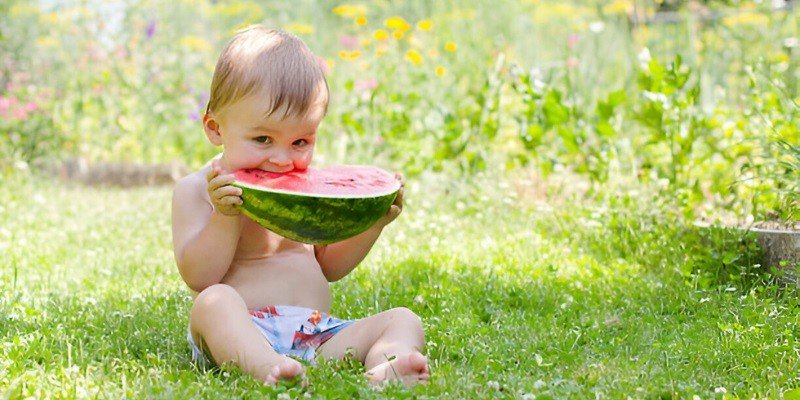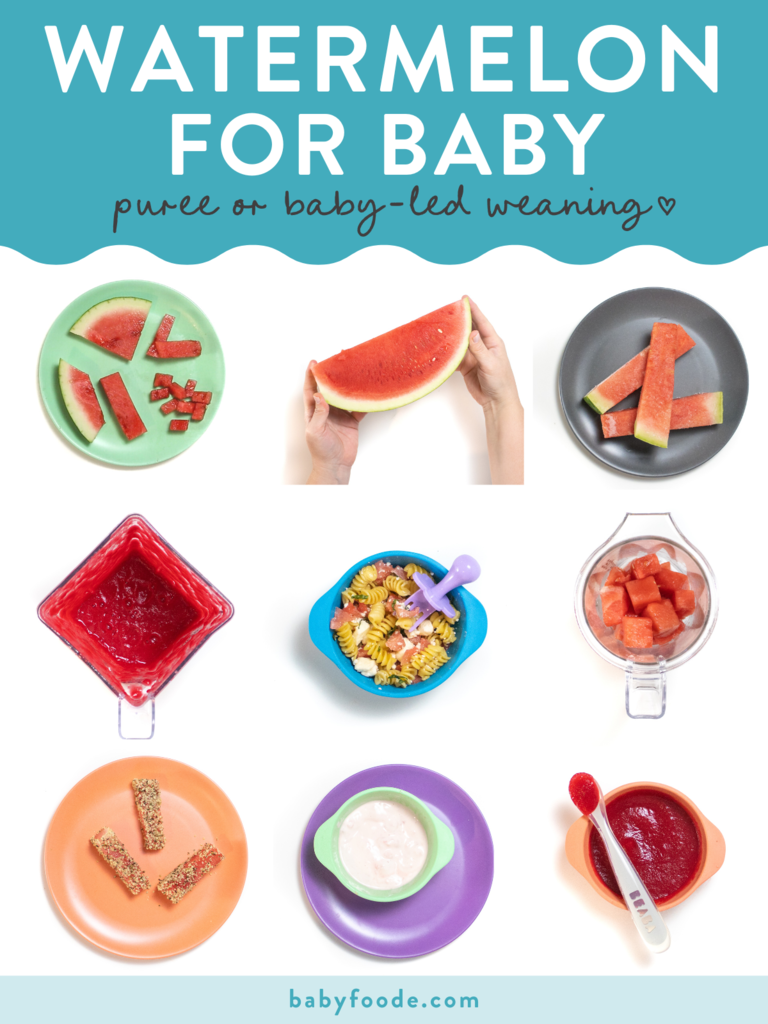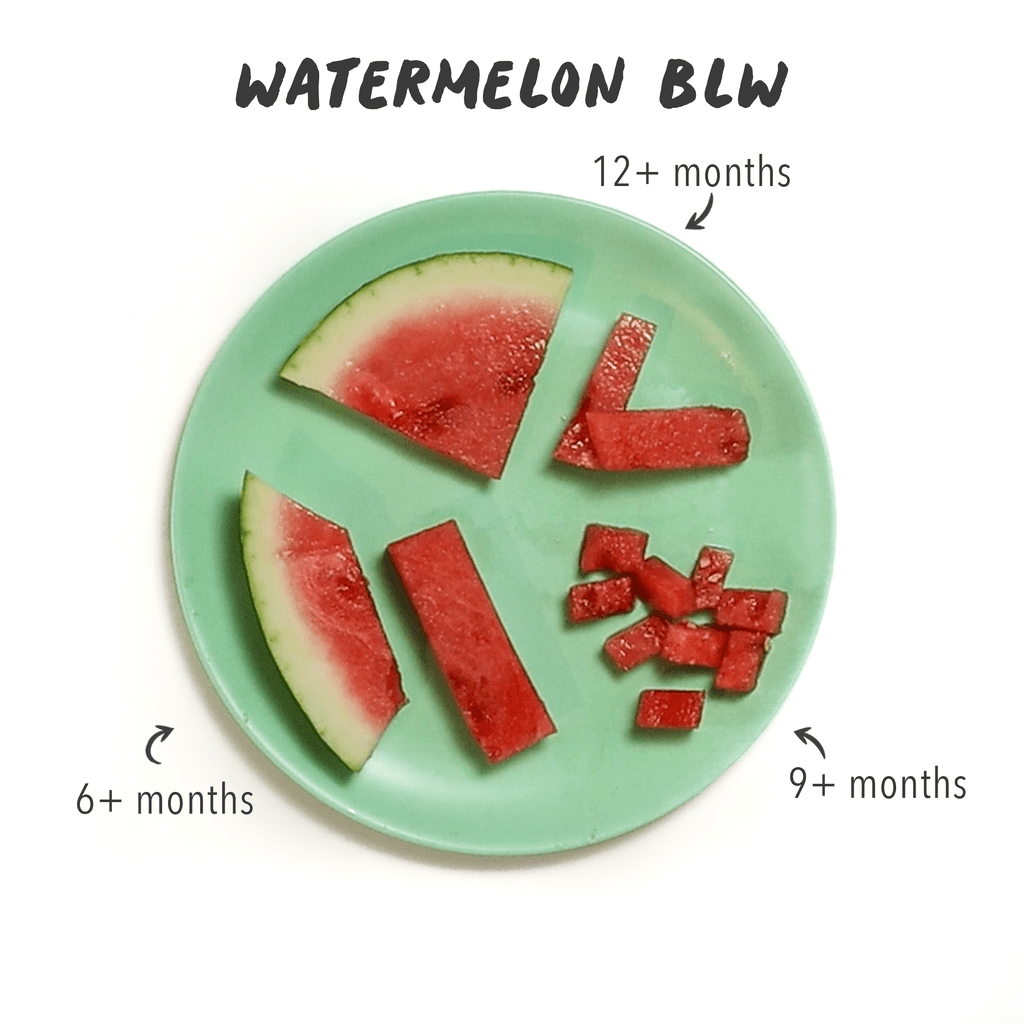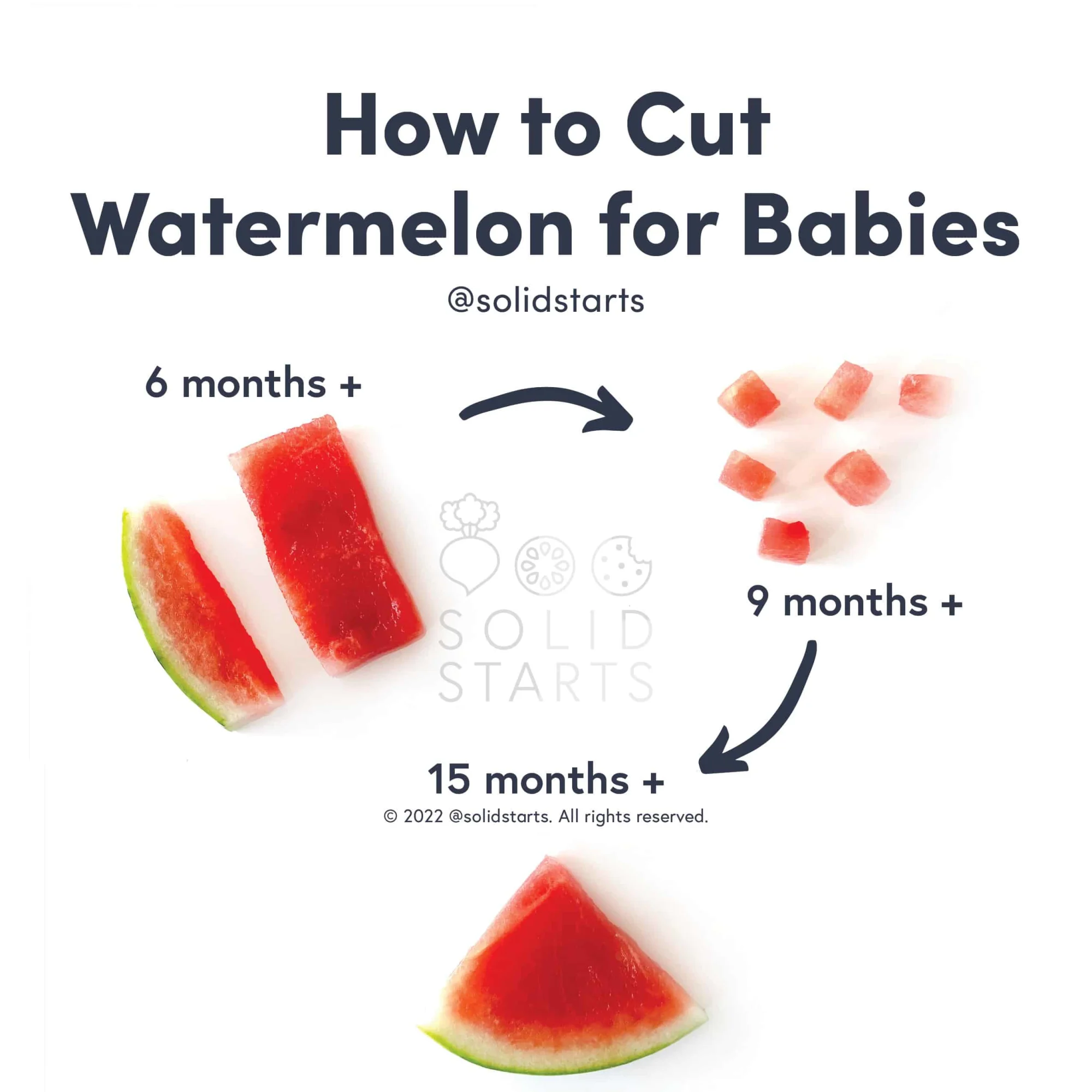Can Babies Have Watermelon?

Yes, babies can have watermelon. Introduce it around six months when they start eating solid foods.
Watermelon is a hydrating and nutritious fruit. It’s a great source of vitamins A, B6, and C. These vitamins support healthy vision, immune function, and brain development. The soft texture of watermelon makes it easy for babies to chew and swallow.
Always remove seeds and cut into small pieces to prevent choking. Start with small amounts to ensure there are no allergies. Watermelon also helps keep babies hydrated, especially in hot weather. Moderation is key to avoid any digestive issues. Introducing watermelon can be a delightful and healthy addition to your baby’s diet.
Introduction To Watermelon As Baby Food
Introducing new foods to your baby can be exciting. Watermelon is a popular summer fruit. It is juicy, sweet, and refreshing. But can babies have watermelon? The short answer is yes. Watermelon can be a great addition to your baby’s diet. This blog will explore the benefits and guidelines of introducing watermelon to your little one.
Nutritional Profile Of Watermelon
Watermelon is more than just a tasty treat. It is packed with essential nutrients. Here’s what makes watermelon a great choice for your baby:
- Vitamins: Rich in Vitamins A, B6, and C.
- Minerals: Contains potassium and magnesium.
- Hydration: Composed of 92% water, perfect for hydration.
- Antioxidants: Contains lycopene and beta-carotene.
Age Recommendations For Introducing Watermelon
It is essential to know the right age to introduce watermelon:
- Introduce watermelon at around 6 months.
- Ensure your baby can sit up and chew.
- Start with small, bite-sized pieces.
- Always supervise your baby while eating.
Watermelon is a great first fruit. It provides essential nutrients. It keeps your baby hydrated and healthy. Make sure to introduce it at the right age.

Credit: babyfoode.com
Preparing Watermelon For Your Baby
Watermelon is a refreshing and nutritious fruit that babies can enjoy. It’s rich in vitamins, minerals, and antioxidants. Preparing watermelon for your baby requires special attention to ensure safety and proper nutrition. Below are some essential tips and guidelines for serving watermelon to your little one.
Safe Serving Suggestions
Introduce watermelon to your baby after they start solid foods. Here’s how you can serve it safely:
- Puree: Blend the watermelon into a smooth puree. This is perfect for younger babies.
- Small Cubes: Cut the watermelon into tiny, manageable cubes. Ensure the pieces are small enough to avoid choking.
- Finger Foods: For older babies, offer thin slices or small chunks. They can easily hold and chew these pieces.
| Age | Serving Suggestion |
|---|---|
| 6-8 months | Pureed or mashed watermelon |
| 8-12 months | Small cubes or thin slices |
| 12+ months | Chunks or sticks |
Avoiding Choking Hazards
Choking is a serious risk for babies. Follow these steps to minimize the danger:
- Remove Seeds: Ensure all seeds are removed before serving. Even tiny seeds can pose a choking hazard.
- Cut into Small Pieces: Always cut watermelon into small, bite-sized pieces. This makes it easier for your baby to chew and swallow.
- Supervise Eating: Never leave your baby unattended while eating. Always supervise meals to ensure safety.
By following these guidelines, you can safely introduce watermelon into your baby’s diet. Enjoy watching your little one explore new tastes and textures!
Potential Benefits And Concerns
Watermelon is a popular summer fruit. Many parents wonder if babies can eat it. This section explores the potential benefits and concerns of giving watermelon to babies.
Hydration And Vitamin Content
Watermelon is 92% water. This can help keep babies hydrated. Hydration is essential for babies, especially in hot weather.
Watermelon also contains vitamins and minerals. It has vitamin A, vitamin C, and potassium. These nutrients support a baby’s growth and immune system.
Allergic Reactions And Digestive Health
Some babies might be allergic to watermelon. Allergic reactions can include rashes or swelling. Always watch for any signs of allergies.
Watermelon is high in fiber. Fiber can help with a baby’s digestion. But too much can cause diarrhea.
| Nutrient | Benefit |
|---|---|
| Vitamin A | Supports vision and immune function |
| Vitamin C | Boosts immune system |
| Potassium | Helps muscle function and heart health |
- Hydration: 92% water content
- Vitamins: A and C
- Minerals: Potassium
- Check for allergies
- Monitor fiber intake
- Offer in small amounts first

Credit: babyfoode.com

Credit: solidstarts.com
Frequently Asked Questions
Can I Give My 6 Month Old Watermelon?
Yes, you can give your 6-month-old watermelon in small, seedless, and mashed pieces. Ensure it is fresh and ripe.
Can My 4 Month Old Lick Watermelon?
Yes, your 4-month-old can lick watermelon. Make sure it’s a small, seedless piece to avoid choking.
Is Watermelon A Common Allergy For Babies?
Watermelon is not a common allergy for babies. Always introduce new foods slowly and watch for reactions.
Is Watermelon Good For Baby Constipation?
Yes, watermelon can help relieve baby constipation. Its high water content and fiber aid digestion and bowel movements.
Can Babies Eat Watermelon Safely?
Yes, babies can eat watermelon safely after 6 months. Ensure it’s seedless and cut into small, manageable pieces.
Conclusion
Watermelon can be a healthy treat for babies when introduced properly. Ensure it’s served in small, manageable pieces. Always monitor your baby while eating to avoid choking hazards. Consult your pediatrician if you have any concerns. Introducing a variety of fruits can help your baby develop a balanced diet and enjoy different flavors.
